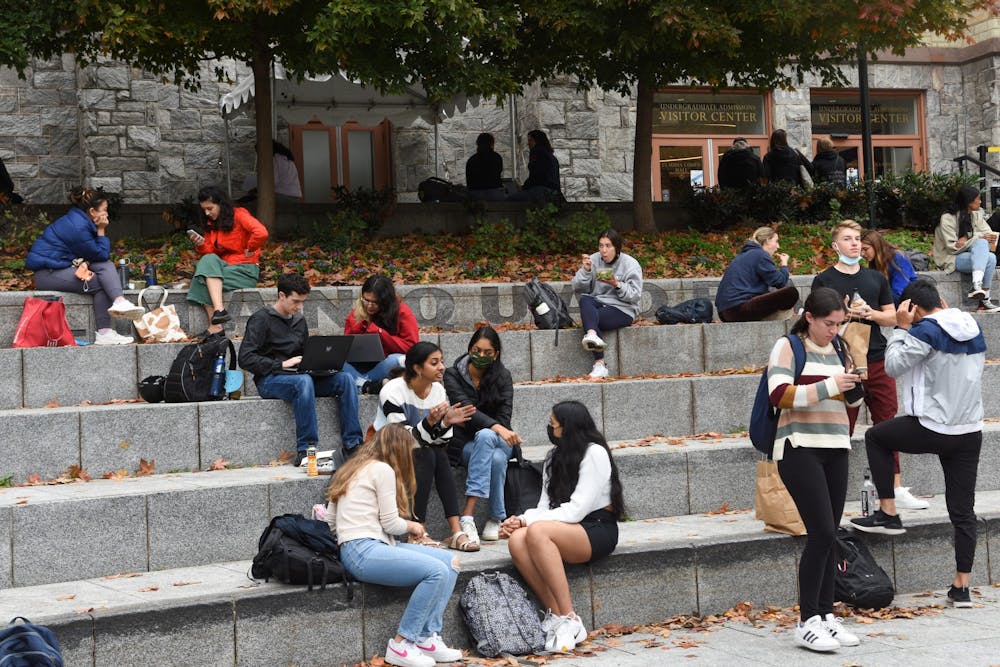
A year and a half ago, the word “zoom” meant little more to us than a means of moving quickly. That obviously changed in March 2020, when our entire world turned upside down and we quickly had to become acquainted with the seldom known software called Zoom Video Conferencing (and other analogous solutions like BlueJeans, Google Meet, etc.). Our classes, our jobs, our friendships, and frankly, our lives became nothing more than pixel manifestations on a screen.
Despite the uncertainty, Zoom worked. If the pandemic occurred 10 years ago, such video conferencing software and network infrastructure would not have existed to support the whole world going online. The technological advances of this decade made it possible for work and friendships to continue, to some degree, despite social distancing. At Penn, it made it possible for our education to continue with virtual classes and club meetings. In short, life continued on a virtual Locust Walk made possible by Zoom. But now with the changing course of the pandemic (and the implementation of vaccines) that has made our return to campus and in-person classes possible, it is time to thank Zoom, retire virtual conferencing software, and end our reliance on digital programming for good. We should fully embrace the privilege we have to see each other in-person at Penn because — as we have learned during the last two academic years — nothing in life is guaranteed.
I want to preface by saying that there are indeed a few instances where virtual conferencing should still be used, namely, when it isn't safe to do so or there is a concern of getting sick or spreading sickness. I am instead talking about the perceived “convenience” that Zoom provides at the expense of having real, live conversations and events. A lot of this behavior is still out of habit; after all, Zoom was our sole option for interaction. We have had to work hard to transition out of only worrying about what shirts, and not pants, we were going to wear. But it doesn't seem that everyone has broken this pandemic custom and is taking advantage of these new in-person opportunities.
At the beginning of the semester, a friend of mine wanted to catch up. Despite both being well and living in the same building, he wanted to Zoom instead of getting a coffee outside in the warm weather. When I asked him why, he responded that he had a paper due the next day and Zooming would be more convenient. I couldn't help but think why we were all here back on campus if we were just going to continue to video ourselves to communicate between a few floors. This extends to other parts of campus life as well, such as classes going online instead of being canceled as they would have been in the past, or departmental info sessions being nothing more than Brady Bunch-style Q&As instead of meaningful presentations and side conversations. Student organizations on campus aren't immune from the convenience rationale either, with some GBMs being conducted virtually while new members are deprived of the very point of student activities in the first place: community.
The continued use of Zoom today is another manifestation of the tragedy of our generation, where we value multitasking, social media and fast convenience over actually connecting with one other. Like Facebook, the price paid for the convenience of connection is apathy and superficiality. Just because something exists and is a convenient option doesn't mean we should use it or take that option. If we consciously reject efficiency, we can return to the way we were and learn to truly know each other once again.
So, my advice is this: get coffee with that classmate, have dinner with that friend, explore Philadelphia with your group, and get off of Zoom. Nothing in life is guaranteed. So seize the day with those around you and cherish what it means to be in-person and human again. It is a precious gift.
JOSEPH M. SQUILLARO is a College senior studying philosophy, politics and economics from East Setauket, N.Y. His email is jsqu@sas.upenn.edu.
The Daily Pennsylvanian is an independent, student-run newspaper. Please consider making a donation to support the coverage that shapes the University. Your generosity ensures a future of strong journalism at Penn.
Donate







